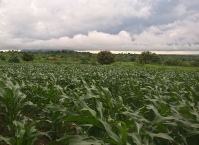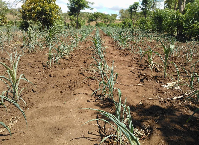




Sustainable OneWorld Technologies C.I.C.
In many parts of the world there are two main seasons, the dry season and the wet or rainy season. Typically in the wet season, the rain comes in sudden heavy bursts that last about an hour. This season may only last for two or three months and the rest of the year there is virtually no rain. In the past the timing of these rains have been predictable but climate change is making the rains more erratic and more extreme giving rise to floods and droughts.
Current practice today
When the rains come there is little or no ways of collecting and storing the rain for use when it is needed
- The types of water tanks available for households and instructions can only hold a small amount of water
- Most of the rain that falls either soaks directly into the earth or runs off into water courses
- Buildings with corrugated roofs do not have any gutters
- Water that could be collected is wasted
Ambitions for a better solution
SOWTech have sought to design and develop system that can collect the rain falls on roofs and store it until it is needed:
- Guttering to collect the rain falling on the roof during the heaviest downpours
- Large tanks to store enough water to be of use during the dry season
- Safe storage of the water
- Cost effective local manufacture of the system.
The "SOWTech Design"
Western style gutters can not be easily fixed to overhanging corrugated tin roofs. The open gutters are also prone to overflow if the rain is too heavy either by “bouncing out” or because the rain cannot flow away quick enough. SOWTech have designed flexible guttering that can wrap around to contain the water and be transported away in large bore pipes. These large bore pipes lead into buffer tanks so cheaper smaller bore pipe can take the water from the buffer tank to the storage tank.
Read more>>>
Using roof areas and rainfall figures, large tanks that can accommodate a whole seasons rainfall are provided. These tanks are assembled in situ using local labour. The tanks are enclosed to minimise the insects and debris entering the water. The water in the tank is then available for use in the dry season for watering crops, washing and, if treated, can be used for drinking. The water in the tanks may not last for the whole of the dry season but it will provide water for use when it is most needed.
Read more>>>
A pilot scheme has been installed in a school in Zimbabwe sponsored by Africa Trust.
Interseasonal rainwater harvesting
What we do
Rainwater harvesting








